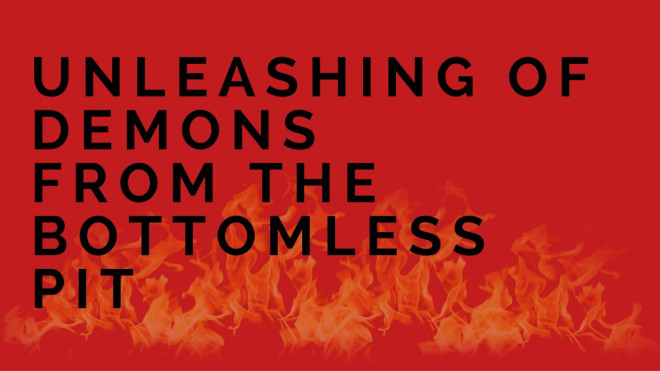
Craig Oliver was David Cameron’s Director of Politics and Communications in the run up to the European Referendum in Great Britain.
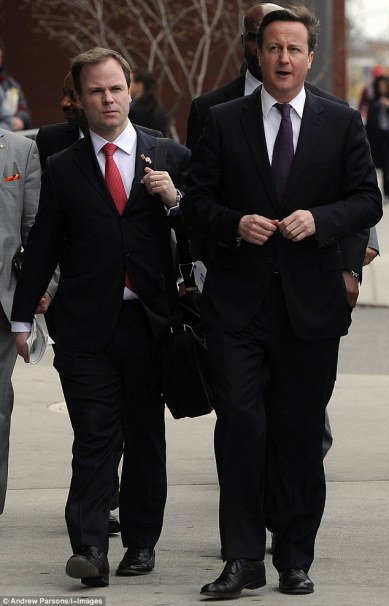 He was well-placed to know what happened and, of course, didn’t happen, as he struggled alongside the prime minister, both in 10 Downing Street, and travelling all over the UK and to the continent of Europe, as the Remain/Stronger In campaigns fought to restrain and refute some of the more passionate, or should I say, extreme, claims of the Outers. Oliver kept a diary because, he writes, “everyone keeps saying this will be the biggest decision for the country since the Second World War”.
He was well-placed to know what happened and, of course, didn’t happen, as he struggled alongside the prime minister, both in 10 Downing Street, and travelling all over the UK and to the continent of Europe, as the Remain/Stronger In campaigns fought to restrain and refute some of the more passionate, or should I say, extreme, claims of the Outers. Oliver kept a diary because, he writes, “everyone keeps saying this will be the biggest decision for the country since the Second World War”.
According to Oliver, Cameron said, that the referendum could “unleash demons of which ye know not”. Oliver, who thought that this was a quotation from The Bible or Shakespeare, states, in his introduction, that the “demons were unleashed and he and his team faced betrayal, lies and political bloodletting on an epic scale”.
For me Cameron’s phrase immediately evokes the words of King Lear in Act Four of the eponymous play, when Lear has just realised the scope of his daughters’ treachery: “I shall have such revenges on you both / That all the world shall – I will do such things – / What they are yet I know not, but they shall be the terrors of the earth”.
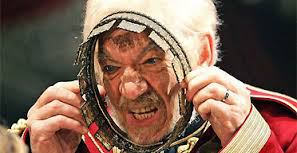 Ian McKellan as King Lear 2009.
Ian McKellan as King Lear 2009.
In Lear’s words, but, also, particularly in the pauses, there are indications of impotence and hesitancy. Whether these two elements were at play in the six-month campaign is the essential argument of the book.
Oliver asserts that Cameron and his team were at the mercy of the media in three ways: “influential newspapers fighting for Leave with ruthless determination, whilst others, in favour of Remain, tended to be left-leaning and therefore lukewarm” and, thirdly, he thinks that television and radio were forced, by law, to report both sides’ points of view, “even when the other side were churning out stories that were at best deeply misleading and at worst, lies”. The Remainers, therefore, were, to some extent, made impotent by the media.
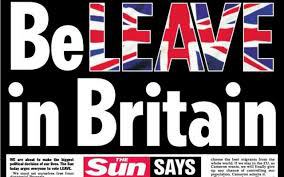
But Oliver also thinks that they made some foolish assumptions. Firstly “that electorates don’t vote against their own pockets” and secondly that there was a sort of lumpen proletariat that would not bother to vote. He says “we realised too late – and didn’t do enough to combat it”. This is hesitancy.
As early as January 1st this year, Oliver reports George Osborne, then Chancellor of the Exchequer, as saying, “we’ve put up with this for too long and nothing is happening, and we have got to sort it out”. But Oliver believes that the Conservative Party was doubly hamstrung at that stage. First Cameron had to try to renegotiate the terms of the relationship between the European Union and the UK. Second, until that ‘deal’ had been done the prime minister, apparently, would not be able to say whether or not he would recommend staying or leaving. So, again, the stench of impotency and hesitancy.
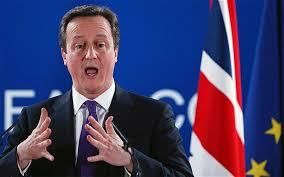 David Cameron: the Telegraph
David Cameron: the Telegraph
As he observes a steady stream of Outist ministers and advisors brief against the government, Oliver wonders how “the average, self-interested Cabinet minister” will act. He ponders on who might risk their career to lead Leave, saying that “backing Leave could see them achieve glory that might not come their way otherwise, or see their career destroyed”.
It’s shocking though, to me, that these public servants would put their own lust for power and continuance, before the best interests of their country, and all its peoples and regions, in this fundamental epoch-changing decision. For me, the Referendum posed a moral question, based more in the principles of friendship and togetherness than in politics and the economy. But it may be that, in my naivety, I am mixing up the ill-fated League of Nations with its monstrous grandchild: the EU.

According to Oliver the “PM is concerned about everything unravelling, fearful over how the wider Conservative party is reacting” so he reassures his boss by outlining the three things that will happen if the referendum goes in favour of the Outers: Cameron will resign, Scotland might well have another independence vote, Great Britain will no longer have leverage in global matters. The language, of the advisor, is defeatist from the get-go.
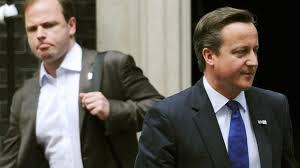 Craig Oliver with David Cameron. ITV.
Craig Oliver with David Cameron. ITV.
The ultra-Europhile, Peter Mandelson, a strange bedfellow, phoned Oliver to set out his own three worries – everything seems corralled into threes in this book – which seem prescient for a conversation in early January. Mandelson wants to know how the government will “dock” with the Remain team. He also is concerned that there is no “core script” for immigration and thirdly he thinks “people fear that Europe is becoming a funnel for terrorism”.
https://embed.theguardian.com/embed/video/politics/video/2017/feb/19/peter-mandelson-people-feel-bulldozed-into-brexit-video
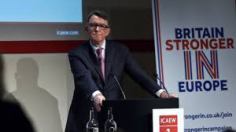

Later that day Oliver and Cameron discussed Theresa May, then Home Secretary, who they believe to be “flirting with the Out campaign”. But they decide that all is calm since she has “a long record of defending the European Union”.
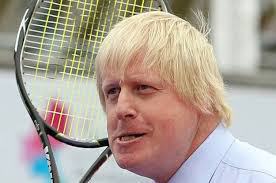 Boris Johnson. Buzzfeed.
Boris Johnson. Buzzfeed.
In the afternoon Cameron beat Boris Johnson at tennis and cheerfully reported joking about Europe with him; Oliver drily comments, “Boris has been flirting with Brexit, but clearly isn’t sure. We’re in for a tortuous wait before he finally shows his hand”.
Reading Unleashing Demons can often be an experience rich with irony. Everything that I have mentioned so far happened within the first ten days of 2016. The referendum took place on 23rd June but in January the seeds were already sown for the disaster ahead, for David Cameron, his team and the Remain campaign.
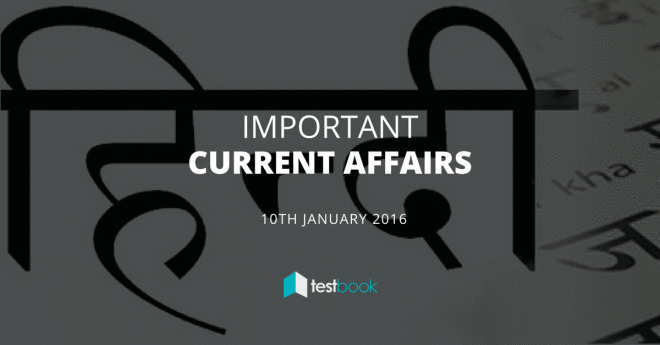
In February Oliver and Cameron and their aids are limbering up for the re-negotiation summit. The deal is done on the 19th. Cameron announces it live on the British TV news. Strong rumours come through whilst Oliver and Cameron are in Brussels that Michael Gove has chosen Out. On the 20th, when they are back in London, Boris seems to opt for Out, but says he expects Britain to stay in.
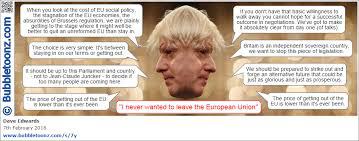 Later in the day, Boris isn’t sure where he stands. Boris describes himself as “veering around like a shopping trolley”. Cameron, on the other hand, his feet firmly planted, is outside No. 10: “My recommendation is clear – Britain will be stronger and safer in a reformed EU”. The deal receives a varied response from politicians and press, but over time is seen by many as insufficient.
Later in the day, Boris isn’t sure where he stands. Boris describes himself as “veering around like a shopping trolley”. Cameron, on the other hand, his feet firmly planted, is outside No. 10: “My recommendation is clear – Britain will be stronger and safer in a reformed EU”. The deal receives a varied response from politicians and press, but over time is seen by many as insufficient.
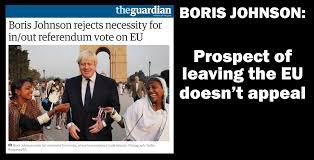
The next day Boris is Out again, but Cameron thinks he is really “a confused Inner”. Nevertheless, states Oliver, the stage is set for the “Clash of the Titans”. Soon after this Oliver resigns his official post under David Cameron to work for Stronger In, but he is still often in Downing Street or working with the prime minister. His diary entries get increasingly frustrated as he juggles politicians with disparate ideas and beliefs, trying to build simple strong media messages from a morass of inconsistencies and contraries.
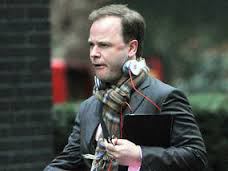 Craig Oliver. express.com
Craig Oliver. express.com
His health suffers: a “wheezy” chest and the “early symptoms of an ulcer”. He attends interminable meetings in drab windowless basements and is fed unappealing sandwiches and watery stew. One day he feels as if he were in a “dystopian movie”. Weeks later, on the occasion of Nigel Farage’s “flotilla of fisherman” streaming up the Thames, he queries how it came “to be this surreal, through-the-looking glass, topsy-turvy madness”. Oliver admits, often, to being “knackered”.
In March Oliver meets with Theresa May at the Home Office. He asks her to be more active in the campaign and receives some reassurance. Another dry analysis from Oliver is “She is on the right side, making clear she is In, but not looking overly enthusiastic. It’s making life uncomfortable for us and many feel she owes DC more, but in purely selfish terms, this positions her best.” One might wonder whether, in this diary “entry” or others, there is a touch of hindsight.
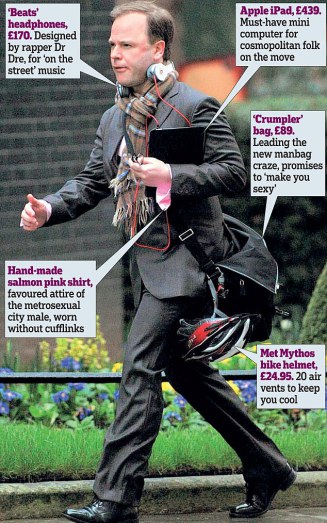 Daily Mail. March 2016.
Daily Mail. March 2016.
Mid March – Oliver wakes with “a throbbing head, tooth-ache and low-level sore throat.” Oh no, it’s man-flu and he hasn’t got time to be ill!
By April he is beginning to feel like the proverbial fool. Can Theresa help by delivering a blast of an interview with Andrew Marr? No, the Remain cause is no further forward. What about her forthcoming speech? But she’s released the speech to The Times before DC and Oliver have pushed through their re-draft. The key offending sentence is that May does not want to “insult people’s intelligence by claiming that everything about the EU is perfect, that membership of the EU is wholly good, or that the sky will fall in if we vote to leave”. Maybe Oliver should sign up Henny Penny?
In the early hours of 14th June Oliver has a “moment of clarity”. He realises that the EU’s freedom of movement stance is “wrong”. An email sent to Cameron suggests that the prime minister should make a speech in which he promises that Britain can remain in the EU and impose limits on immigration. But it’s too late to change tack. A decision is made not to deliver that speech and that promise. Cameron was impotent in his attempts to renegotiate Britain’s membership of the EU and Remain/Stronger In have hesitated too long. Doubts darken Oliver’s thoughts: he now thinks “telling people they will be poorer if they leave the EU” does not “trump controlling immigration”.
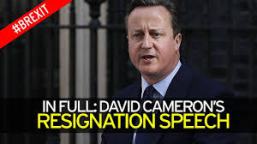 Manchester Evening News
Manchester Evening News
By the 15th June, with poll after poll being very close – at one point there are thought to be only 30,000 votes in it – Oliver has decided that David Cameron’s tenure is over: he cannot survive even if Remain win. The PM, on the other hand, seems to be planning a September reshuffle and might already have done a deal with Boris.
Reading Unleashing Demons is a bit like watching a performance of King Lear. You know the denouement but you just can’t help hoping that Cordelia will survive. And then she is hanged.
 Theresa May. The Telegraph.
Theresa May. The Telegraph.
We know the end of this story too. Angela Merkel is given space at the end of the book to say, “What is painful to me is that young people failed to turn out in numbers to vote”. Oliver comments, “Quite”. Immediately after the vote, Oliver says, the country seemed to be in the hands of, what, columnist, Janan Ganesh, thinks are “jokers at an auction whose playfully exorbitant bid for a vase had just been accepted with a chilling smash of the gavel”. The “jokers” crash and burn but May strides elegantly through the rubble to take up the reins. Perhaps the sky will not fall in?
Works cited
Oliver, C. Unleashing Demons: the inside story of Brexit. Hodder and Stoughton. 2016.
This book review was first published on 3rd June 2017 and appeared on page 33 and 34 of the Weekend Section of the Irish Examiner.
Advertisements Share this:




